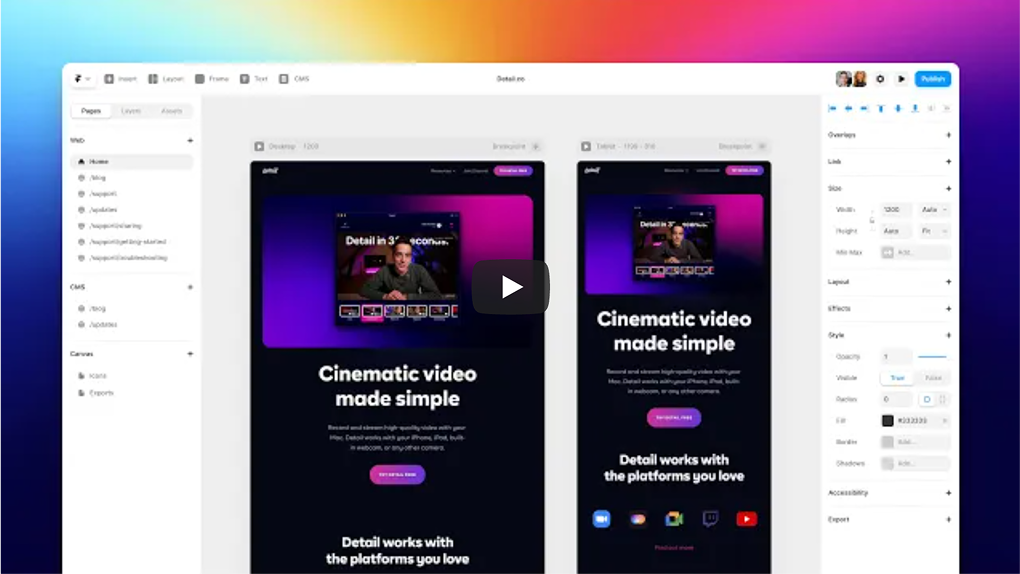
Eliminating Quiet Constraint with Power Skills
December 7, 2022

This has been the year of corporate buzzwords especially when it comes to employee productivity. From quiet quitting to productivity paranoia, the one thing that’s been at the forefront of discussions is the feeling of discontentment either amongst employees or within teams. Moreover, organizations have over the last few years witnessed a huge change in the world of work. Today, remote and hybrid working environments have become commonplace and are indeed preferred by employees at large. This is bound to come with its own undercurrents that can now be felt setting themselves strongly in organizational systems. Quiet constraint highlights the latest one in the mix.
What is quiet constraint?
A conscious or subconscious communication gap within the team leading to low information-sharing between team members that can potentially affect work culture and productivity in the long run.
Let’s break this down further. The Kahoot!’s 2022 Workplace Culture Report highlighted that many employees tend to withhold important information and knowledge from other team members despite knowing that it might be beneficial to them. In fact, in the research study conducted by them, 58% of workers said they are holding valuable knowledge that could benefit their co-workers. While this trend reflects a serious communication gap within organizations, it also shows that culturally, organizations need to think more deeply about employee engagement and productivity than ever before.

How does quiet constraint impact an organization?
There are multiple ways in which organizations can be affected by this new workplace trend. One of the most effective ways of learning within an organization is peer-to-peer. In the absence of adequate knowledge sharing between employees and within teams, a company can face three main issues:
- Poor team collaboration
- Negative competitive culture
- Low collective productivity
These issues directly impact business metrics within an organization and can over time, if unchecked, create a culture of silence.
But, what leads to quiet constraint?
There are multiple reasons for quiet constraint to occur and can reflect problems within working systems. Employees could be feeling threatened, they might perceive the culture as not open enough or there is likely to be a disconnect within teams. Knowledge sharing is often encouraged because it accelerates productivity. The remote work environment stunted this spike in productivity to some extent by reducing face time between employees.
At Fundamento, we sliced the trend to understand underlying behaviors in employees that lead to reluctant knowledge sharing. Our team of IO psychologists and data experts identified power skills that played a critical role in curbing quiet constraint by establishing a culture of trust, strong work ethic and reliability. However, these power skills are divided under two main categories – leaders and teams.
We believe that employers must invest in both leaders and team members to develop certain power skills that promote adequate knowledge and information sharing in a manner that doesn’t allow stagnation of expertise or productivity.
Power skills for leaders
It is critical for leaders to develop these skills in order to curb quiet constraint in their teams and to establish a culture of knowledge sharing.

Curiosity
The ability to be driven by eagerness, logic and realistic observations to explore and seek out novel information or experiences.
Inspirational Leadership
The ability to inspire, influence, and lead by example. This involves creating a shared vision and articulating a mission towards achieving common goals.
Empathy
The emotional ability to understand, share and anticipate the feelings of another.
Deep Collaboration
The ability to collaborate or operate in cross-functional capacities for a shared purpose. It involves acknowledging interdependence, transparency, cultural diversity, and individual or team contributions to help accomplish organizational goals.
While these skills are self-explanatory, it is important to understand how they manifest in day-to-day work life. In plain words, this is how these skills play out at work and can help leaders work with their teams better:
- Ask questions and actively show eagerness to know more about the team and their work so that it motivates them to share information
- Lead the way for ideal knowledge sharing at work with openness to feedback and by accepting different point of views
- Understand team’s concerns, opinions and thoughts behind actions to know where they are coming from thereby creating a more positive work environment
- Encourage cross-functional collaboration, within verticals, to share ideas and learn from each other
Power skills for teams
It is critical that team members are checked at earlier stages of development in a company in order to prevent quiet constraint at work. Developing these power skills in them is step one in that direction.

Professional Reliability
The ability to be responsible for and willing to hold account of one’s functioning. It is the combined ability to maintain transparency, autonomy and dependability in all aspects of work.
Conflict Resolution
The process of putting an end to a dispute by utilizing active ways of rectification. It involves finding a solution to a disagreement or opposition.
Teamwork and Collaboration
The ability to respectfully work with others to achieve a shared goal, build group synergy and enthusiastic participation.
Organizational Awareness
The ability to recognize formal and informal relationships within an organization. It involves reading emotional currents and power dynamics.
In leaders, power skills focus on how they can enable their teams to perform better, but in teams, these skills directly impact their own performance and productivity. Therefore, how these skills play out in day-to-day work life are slightly different:
- Focus on getting the work done and understand how it impacts overall organizational productivity through appropriate knowledge sharing
- Avoid unnecessary conflicts to come in the way of key information sharing
- Work respectfully with others towards a common goal
- Understand power dynamics and emotional currents in the company and alter approach accordingly
These power skills play a huge role in ensuring that in the new world of work, with hybrid and remote work becoming the norm, employees feel engaged and comfortable enough to actively participate in healthy knowledge sharing on a regular basis.



